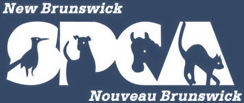To report animal abuse and neglect or rural dog control issues please call
1-877-722-1522
FAQs - Animal Protection
- What is considered animal cruelty and neglect?
- I’ve made a complaint, will an officer contact me and tell me what he or she found?
- I made a complaint and the situation hasn’t changed. Why?
- What happens to animals that are taken into the NBSPCA’s care?
- What is the difference between an Animal Protection Officer and other volunteer rescuers?
- Do officers investigate all complaints made?
- How does a person become and Animal Protection Officer?
What is considered animal cruelty and neglect?
Neglect is the failure to provide adequate water, food, shelter, and necessary care. Examples of neglect include: starvation, dehydration, inadequate shelter, parasite infestations, failure to seek veterinary care when an animal is in need of medical attention, allowing a collar to grow into an animal’s skin, confinement without adequate light, ventilation, space or in unsanitary conditions, and failure to trim hoofs or nails resulting in excessive growth. In some cases neglect is a result of the owner’s ignorance.
Cruelty and abuse involves deliberate physical harm or injury inflicted on an animal, such as beating or poisoning an animal.
The following may be signs of neglect or cruelty:
- Wounds on the body.
- Severely overgrown nails (often curling under) or hooves (often curling upwards).
- Patches of missing hair.
- Extremely thin, starving animals with ribs or backbone protruding.
- Infected eyes that have been left untreated.
- Limping.
- Animals who are repeatedly left alone without food and water, either inside a residence or in a yard.
- Animals who have been hit by cars and have not received veterinary attention.
- Animals who are kept outside without shelter in extreme weather conditions.
- An owner kicking, hitting or otherwise physically abusing an animal.
- Severe flea or tick infestations left untreated.
- Animals left in a car on a hot day.
- Animals crammed into tiny cages in overcrowded conditions.
- Abandonment (often when pet owners move)
- Animals kept in dirty conditions including being forced to stand in their own urine and excrement.
- Swellings, such as tumours or abscesses, left untreated.
- Inhumane euthanasia.
I’ve made a complaint, will an officer contact me and tell me what he or she found?
Due to privacy laws in New Brunswick the officer cannot provide certain information, but will give you a follow up call and a brief update.
I made a complaint and the situation hasn’t changed. Why?
An Animal Protection Officer’s initial step when responding to a complaint is educating the owner and issuing a compliance notice to improve the animal’s living conditions. This gives owners the chance to rectify the situation themselves. The time an owner is given to do this depends on the issue present, so changes may be slow. Also, officers can only enforce what is written in legislation. Sometimes a complaint is judged to be unfounded. This means that the owner meets minimum requirements under legislation, therefore there is nothing the officer can enforce.
What happens to animals that are taken into the NBSPCA’s care?
When an animal is taken into care by an Animal Protection Officer it is given immediate veterinary care if required, and then taken to a partner SPCA shelter in the area. These animals are in the care of the NBSPCA anywhere from 48 hours to 15 days, depending on the case. During this holding period the NBSPCA covers all costs related to the animal’s housing, feeding, and medical care. Once the holding period is up, the owner is required to pay associated bills. If the bills are not paid, the animals become the property of the NBSPCA and are released to a shelter to be adopted. If owners do pay associated bills, they may or may not get their animals back, depending on the case and whether charges are applicable.
What is the difference between an Animal Protection Officer and other volunteer rescuers?
After passing an exam, Animal Protection Officers are appointed by the Minister of Environment and Local Government under the SPCA Act. They are the only people in the province, other than police officers, with the powers to enforce animal cruelty laws Volunteer rescuers or rescue groups do not have these powers.
Do officers investigate all complaints made?
Yes. Every complaint that comes in from the hotline is investigated by the officer in that specific area.
How does a person become and Animal Protection Officer?
Animal Protection Officers are initially hired by the NBSPCA as Inspectors. Applicants with experience in law enforcement are shown preference. They are provided with on the job training for six months. After this training period they must pass an exam to become an Animal Protection Officer. Animal Protection Officers and Inspectors are required to attend training sessions every year.

